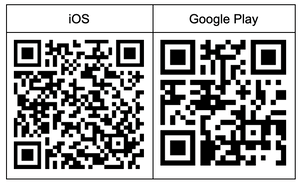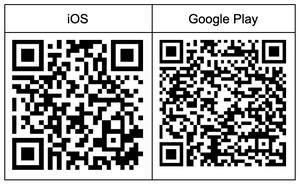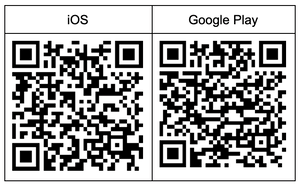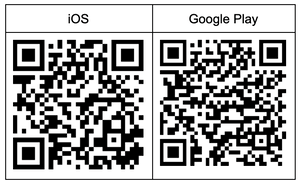5 apps to create AR
https://www.iste.org/explore/tools-devices-and-apps/create-ar-using-these-5-apps
ARize Free for up to 10 experiences

Arloopa Free for up to 10 experiences

Assemblr Free with the QR code

EyeJack Creator Free


Digital Literacy for St. Cloud State University
https://www.iste.org/explore/tools-devices-and-apps/create-ar-using-these-5-apps
ARize Free for up to 10 experiences

Arloopa Free for up to 10 experiences

Assemblr Free with the QR code

EyeJack Creator Free


Unlike in other post-communist countries, where atrocities committed by former regimes are being documented by government institutions — such as the Stasi Records Archive in Germany or the Institute of National Remembrance in Poland — in Russia this mammoth task was left to volunteers.
https://www.npr.org/2021/12/24/1063057224/archeology-science-discovery-2021-dna-mammoth
Institutions of higher education have a chance to play a role in transforming the outdated perception of what college is–via strategies including upskilling
There is a greater need than ever before to provide increasingly specialized disciplinary knowledge, coupled with advanced workforce skills, without diminishing the role and importance of a broad-based education that ensures critical thinking and analytical reasoning along with social and communications skills and understanding. Simultaneously, in the context of millions of employees with some or no college and no degree, there is a need for academia to play an increased role in facilitating the continued employability of people already in the workforce through short-term credentials and certifications, enabling an updating of their knowledge and skills base.
Coskilling: The integration of knowledge (broad based and specialized) and relevant job skills into degree programs so that both facets are mastered simultaneously requires that institutions of higher ed focus on four key aspects simultaneously: (a) Increase opportunities for students to gain a well-rounded education intertwined with professional skills; (b) Respond at a significantly faster pace to the needs of the job market and be better aligned with advances in technology and information; (c) Create more flexible and personalized pathways for students to convert knowledge and learning to skills that result in earnings capacity; and (d) Change the “stove pipe” structure between academe and the workplace to enable greater alignment between the curriculum and new areas of workforce need.
Coding and “skills-building” bootcamps, enhanced career development services, and credentials and certificates are increasingly being offered by community colleges and universities either by themselves, or in conjunction with, external entities. Some are forming partnerships with corporate giants such as Boeing, Amazon Web Services, Cisco, and Google,
Upskilling
a greater need for employees to be “upskilled–mastering new skills, developing an understanding of a higher level of use of technology, and operating in a highly data-driven world. While a portion of upskilling can be undertaken “on the job,” institutions of higher education have the responsibility and opportunity to develop new certificates and courses, both self-standing and stackable, towards post-baccalaureate degrees that will build on existing levels of knowledge and skill sets.
https://www.chronicle.com/article/coaches-and-presidents-are-robbing-us
There are now significant numbers of administrators in America’s colleges and universities who are being paid, in real dollars, more than the highest-paid university president was receiving when I was an undergraduate, in the early 1980s — in quite a few cases, many multiples more.
he outrageous athletics salaries can even seem to justify the administrative overpay. By a kind of perverse psychological effect, paying a college football coach $10 million per year makes paying a university president $1.5 million, a provost $800,000, and various vice provosts and vice chancellors $500,000 each seem positively parsimonious by comparison.
+++++++++++++++++
https://www.facebook.com/Interfacultyorganization/posts/2940666006209784
Virtual reality training at Lakeland immerses surgical technology students into 3-D operating room
PeriopSim and PeriopSimVR use lifelike imagery and gaming technology to immerse students in a 3-D world.
a new paper in Applied Cognitive Psychology….
231 student participants to watch two YouTube videos (one on real estate appraisals and the other on the Roman Empire) at normal speed, 1.5x speed, 2x speed or 2.5x speed. They were told to watch the videos in full screen mode and not to pause them or take any notes. After each video, the students took comprehension tests, which were repeated a week later. The results were clear: the 1.5x and 2x groups did just as well on the tests as those who’d watched the videos at normal speed, both immediately afterwards and one week on. Only at 2.5x was learning impaired.
When the team surveyed a separate group of UCLA students, they found that a massive 85% usually watched pre-recorded lectures at faster than normal speed. However, 91% said they thought that normal speed or slightly faster (1.5x) would be better for learning than 2x or 2.5x. These new results certainly suggest that this isn’t right: double-time viewing was just as good as normal viewing.
While 2x viewing was fine for learning about the material in their studies — real estate appraisals and the Roman Empire — perhaps it might not work for more complex subject matter; again, only more research will tell.
+++++++++++++++++
more on 2x in this IMS blog
https://blog.stcloudstate.edu/ims?s=2x
My annotations to the document:
https://hyp.is/go?url=https%3A%2F%2Fmedia-exp1.licdn.com%2Fdms%2Fdocument%2FC561FAQGCEOxjElpYdQ%2Ffeedshare-document-pdf-analyzed%2F0%2F1639993836361%3Fe%3D1640433600%26v%3Dbeta%26t%3DgSSwhduluTdmUfDnG9LDDo1cwS5gkvabzab4IiuX8ac&group=__world__
+++++++++++++++++++
more on burnout in this iMS blog
https://blog.stcloudstate.edu/ims?s=burnout